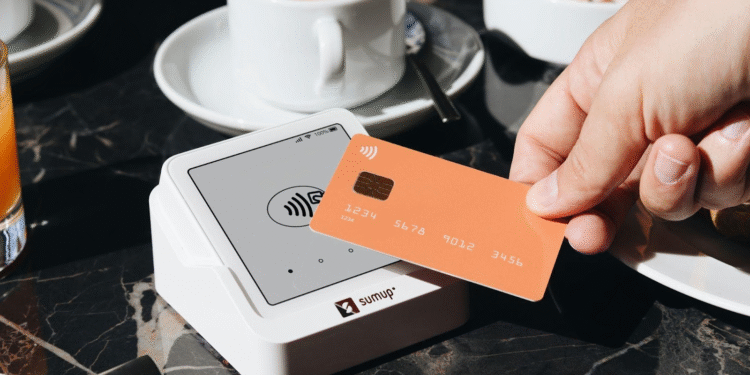Image from Unsplash
There was a time when cash was king for local businesses. A simple register, a trusted regular, and a handful of change often kept the day humming along. But as consumer habits evolve and expectations for security, speed, and professionalism rise, local businesses are rethinking how they handle money. These days, platforms like https://www.solvent.io/ are proving that even in highly regulated sectors, secure and compliant payment systems can build immense credibility. And increasingly, businesses of every kind, from corner cafes to home-based consultants, are learning to do the same.
Let’s explore why secure payments aren’t just about moving money, they’re about building trust, reputation, and long-term resilience for small and local businesses.
The Shift from Informal to Institutional
Many small businesses start informally. Think flea market stalls, hobbyist makers, tutors, or cleaning services. The payment method? Often cash or peer-to-peer apps with minimal record-keeping.
But as these businesses grow, so do their operational responsibilities, and customer expectations. Consumers now expect digital receipts, instant confirmation, and assurance that their data (and money) are protected. For local businesses, moving away from informal systems isn’t just smart, it’s necessary to survive.
Secure payment platforms allow even the smallest business to present itself as trustworthy, modern, and transparent. That shift in perception alone can transform a casual customer into a loyal one.
Why Trust Begins at the Checkout
It’s no secret that customer loyalty is harder to earn in today’s hyper-competitive world. But the checkout experience, the final moment in a transaction, is where trust is often won or lost.
When customers see secure payment gateways, HTTPS-enabled websites, and branded receipts, they feel reassured. They know who they’re buying from, what they’re getting, and that there’s a paper trail.
On the other hand, requests for cash payments, suspicious links, or unfamiliar interfaces can raise red flags, even if the business is legitimate. In essence, a poor payment experience undermines everything else you’ve built.
Secure Systems = Better Compliance
Security and compliance go hand in hand. Whether it’s adhering to GDPR regulations in the UK or implementing PCI-DSS standards for credit card transactions, secure systems help small businesses stay on the right side of the law.
Platforms like Solvent, which serve industries with stringent regulatory oversight, exemplify how payment systems can do more than just process money. They automate documentation, monitor for suspicious activity, and offer real-time reporting, all tools that help businesses maintain both internal control and legal compliance.
Even outside high-risk sectors, these capabilities are becoming the norm. More customers want transparency, and more banks require clean digital trails before approving loans or partnerships.
According to the UK’s National Cyber Security Centre, small businesses are frequent targets of payment fraud and cyberattacks, making secure systems critical, not optional.
Enhancing the Customer Experience
Secure payments aren’t just about what happens behind the scenes. They directly shape the customer experience. Think about:
- Speed: Contactless and mobile payments are faster, meaning shorter queues and happier customers.
- Clarity: Clear billing, refund policies, and receipts reduce disputes and confusion.
- Confidence: Familiar interfaces and encryption cues give customers peace of mind.
These seemingly small touches matter more than many realise. A seamless payment process can leave a stronger impression than a clever slogan or flashy website.
The Power of Digital Paper Trails
Cash may be simple, but it leaves no trace, and that’s a problem when something goes wrong. With digital, secure payment systems, both businesses and customers have access to full transaction histories.
For the business owner, this means:
- Easier accounting
- Faster tax preparation
- Better inventory syncing
- Clearer customer analytics
For the customer, it means:
- Confidence in refunds or exchanges
- Proof of purchase
- No disputes over payment
Digital trails also add value in legal or insurance matters, providing documentation that may be vital during audits or claims.
Scaling with Security in Mind

Image from Unsplash
One of the best parts about adopting secure payment solutions early on is scalability. Systems like Solvent are designed to grow with the business, from managing a few clients to supporting hundreds of transactions a day.
Other local businesses can learn from that model. Choosing scalable, compliance-ready systems ensures that as your operations expand, your infrastructure doesn’t break under pressure.
Features to look for include:
- Multi-user access with permissions
- Automated invoicing and reminders
- Secure customer vaults
- Real-time reporting dashboards
- Integration with accounting or CRM tools
You don’t need all the bells and whistles on day one, but starting with a trustworthy core system gives you a foundation for growth.
Reputation and Word of Mouth
Today, customer trust travels at the speed of social media. A single bad experience, especially involving payment issues, can spread fast.
On the flip side, offering a professional, secure payment experience can lead to:
- Positive reviews
- Repeat customers
- Referrals
- Increased willingness to pay higher prices
People are more likely to support businesses that appear reliable. In competitive local markets, that edge can make all the difference.
Integration with Loyalty and Marketing Tools
Many secure payment platforms offer bonus features like loyalty point tracking, email capture, or instant feedback tools. These extras not only increase customer engagement but also provide valuable insights for the business.
By integrating marketing with your payment process, you can:
- Reward repeat buyers
- Send targeted promotions
- Collect reviews
- Analyse purchasing trends
What begins as a functional upgrade becomes a full-blown growth strategy.
Accessibility and Inclusion
Secure digital payments also open the door to a wider audience. Customers who don’t carry cash, or who rely on contactless for accessibility reasons, can now easily shop at local businesses.
Accepting a variety of payment methods, including Apple Pay, Google Pay, chip cards, and mobile invoices, ensures you’re not excluding segments of your market.
Moreover, secure systems provide translations, currency conversions, and mobile-friendly designs, features that help expand your reach without needing extra overhead.
How to Get Started
If you’re a local business looking to make the jump from informal to secure payments, here’s a quick roadmap:
- Research platforms that specialise in your industry or risk category.
- Check for compliance certifications like PCI-DSS, GDPR-readiness, or SOC 2.
- Prioritise user experience, both for you and your customer.
- Test integrations with your website, POS system, or accounting software.
- Start small, track performance, and expand gradually.
And don’t forget to communicate the change. Let your customers know you’re upgrading to protect their information and enhance their experience.
Secure payments aren’t a luxury for local businesses, they’re a necessity. From brand perception to legal compliance, the benefits of embracing modern, secure payment systems are too powerful to ignore.
By moving from cash to credibility, they’re not just processing payments, they’re building a legacy.













